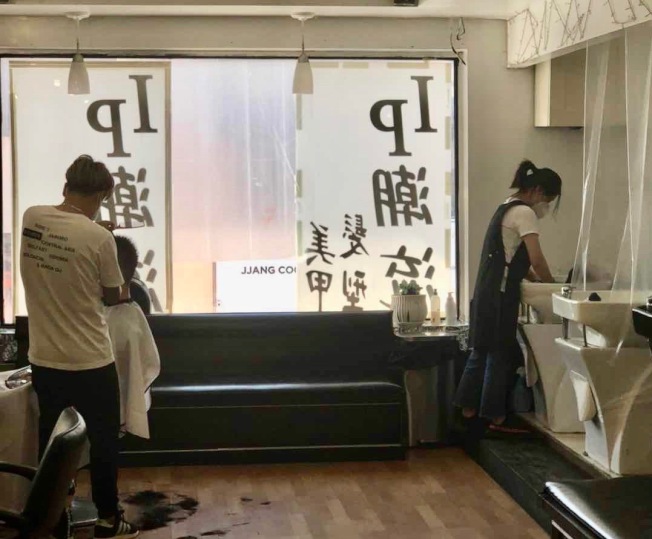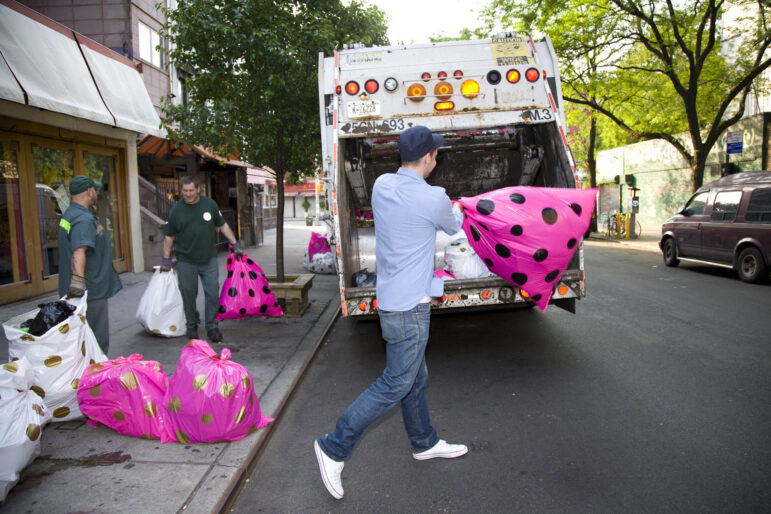The measure says employees at hair salons should go through a similar license process as those working at clinics and nursing homes in order to protect consumer rights.

Courtesy of Zirong Wang
A recent Assembly bill would require shampoo assistants to have at least 500 hours professional training and obtain a license.The original story appeared in World Journal.
Translated by Rong Xiaoqing from Chinese
A bill recently proposed by several state Assemblymembers requires shampoo assistants at hair salons to take a 1,000-hour cosmetology training program and obtain a license before being allowed to work.
Many Chinese hair salon owners worry the bill would give them a choice between firing unlicensed employees and getting tickets. Some suspect the bill means to create a revenue source for the state rather than protect consumers.
The bill, A06578, was proposed by Democratic Assembly members Carrie Woerner, John T. McDonald III and others. It states that employees at hair salons should go through a similar license process as those working at clinics and nursing homes in order to protect consumer rights.
If passed, hair salons would only be allowed to hire shampoo assistants who have taken at least 500 hours of cosmetology coursework and obtained a license. And the employee has to remain enrolled in the program until he or she completes the 1,000-hour total.
The bill immediately triggered resistance in the hair-salon industry as many owners worry that new regulation during a pandemic would make more people lose their jobs. Chung Dick, a member of the executive committee of the New York City Conservative Party and a hair salon owner, said authority-approved cosmetology training could cost as much as $18,000, and “even if you want to protect consumers and require employees to be equipped with related knowledge and skills, it doesn’t need a 1,000-hour training,” Dick said.
Dick also questioned the timing and the process of the introduction of the bill. He said the bill was proposed when the pandemic had already driven up the unemployment rate and without even soliciting feedback from small business owners. And the goal of the bill is unclear. “If it is passed, the governments would be able to get more revenue from the application and revoking of the license as well as issuing tickets to violators,” said Dick. “Consumer protection may not be the real purpose.”
Dick said most of times the inspectors won’t leave without issuing tickets. And small, mom-and-pop barbers would be hit hard as the costs on training shampoo assistants may drive already struggling firms out of business.
In the official justification for the bill, its proponents argue that cosmetology students need clinical practice in order to complete their training, but often it is hard to find. The backers say the measure would open shampoo work to those students, and say 21 states around the country have similar laws. (One state’s regime, Tennessee’s, attracted media attention five years ago).
Zirong Wang, who runs a hair salon on Main Street, Flushing, said he had already fired a few employees since the pandemic started. Now he only hires licensed shampoo assistants. Wang said shampoo assistants need to help in the process of coloring, rinsing, and oil treatment, and proper training can avoid irregular practice and better protect customers.
“Any ticket during the pandemic would be a heavy burden to us,” said Wang. “Although the bill hasn’t passed yet, we decided to take it seriously in advance to make sure we won’t be fined.”
Hair salon inspectors visit the stores on a random basis. A license violation would be fined $500 the first time, and $1,000 for a second time. Xiaoyun Wang, who runs a hair salon on Roosevelt Avenue in Flushing, said she has had several random inspections. But she didn’t get a ticket, thanks to her firm demand for licenses when recruiting.
With additional reporting by City Limits










